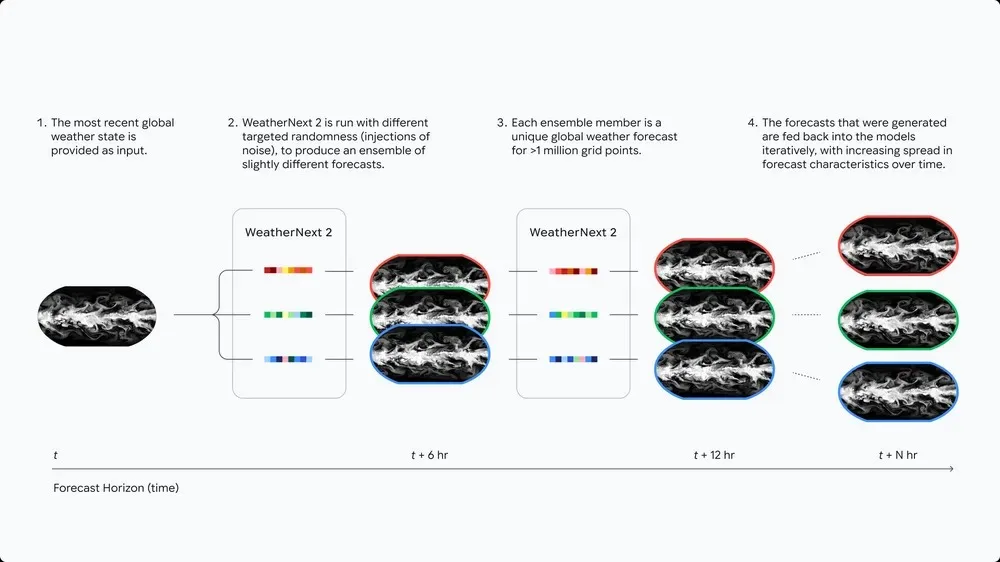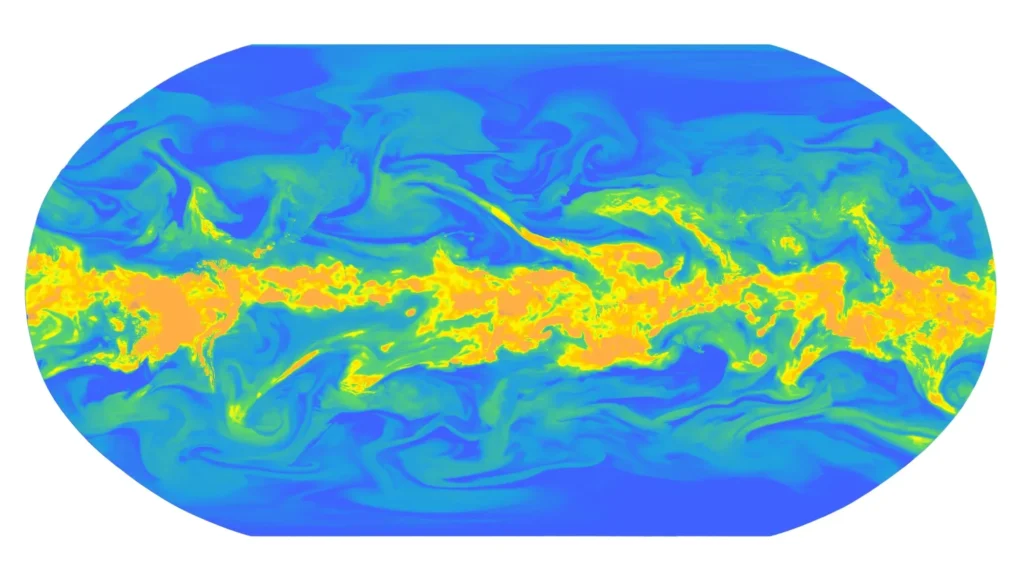Google launches WeatherNext 2, the AI that predicts the weather up to 15 days
Google is transforming a centuries-old discipline: weather forecasting. With WeatherNext 2, its new AI-powered model, the tech giant from Mountain View promises more reliable, faster forecasts that users can access directly via Search, Gemini, and Pixel devices. This represents a profound yet subtle revolution.
AI for Weather: A Paradigm Shift
Currently, most weather forecasts rely on complex physical simulations executed by supercomputers. These essential yet costly models take several hours to generate an accurate report. WeatherNext 2 changes everything.
Utilizing vast historical data sets, the model learns to identify climatic patterns and generates a forecast in under a minute, thanks to Google’s proprietary TPU (Tensor Processing Units). This speed significantly surpasses current methods, while also improving reliability.
Google states that WeatherNext 2 can predict 99.9% of key variables (rain, wind, temperatures, sudden phenomena), extending forecast precision up to 15 days, compared to around ten days previously.
The Secret Behind WeatherNext 2: A Functional Generative Network
To achieve this technological leap, Google introduces an innovative architecture: the Functional Generative Network (FGN). Unlike previous AI models that recalculated multiple scenarios repeatedly, the FGN generates hundreds of possible outcomes in a single pass, incorporating a measure of controlled randomness (noise).
The result is improved forecasting of sudden phenomena (showers, gusts of wind, heatwaves) and more coherent projections for the short and medium term.
As explained by Peter Battaglia from Google DeepMind, “We are finally bringing these models out of the lab and directly into the hands of users.” The message is clear: AI will no longer be merely an experimental tool, but a central product in the Google experience.
A Massive Integration into Google Search, Gemini, and Pixel
For the first time, Google will highlight AI weather forecasts as a key feature of its services. WeatherNext 2 will soon be integrated into:
- Google Search,
- the Gemini assistant,
- the Weather app on Pixel smartphones.
This means more accurate, context-rich weather reports, and possibly an end to vague indications from current assistants. Users could, for example, find out the exact intensity of a snowstorm or the probability of rain during specific short timeframes.

Google is also launching an early access program that allows businesses and researchers to create their customized weather models using WeatherNext 2.
Weather AI: The Next Big Revolution in Data
The rise of generative models applied to weather forecasting is part of a broader movement: an AI that serves climate, logistical, and societal challenges. From MedGemma for health to WeatherNext for weather, Google is showcasing its ambition: to make AI useful, operational, almost invisible—but indispensable.
The implications for weather are significant: preparation for natural disasters, energy management, agriculture, aviation, and mobility. A more reliable forecast translates into a more precise ecosystem.
For users, this could simply mean knowing exactly when it will rain and how much.




